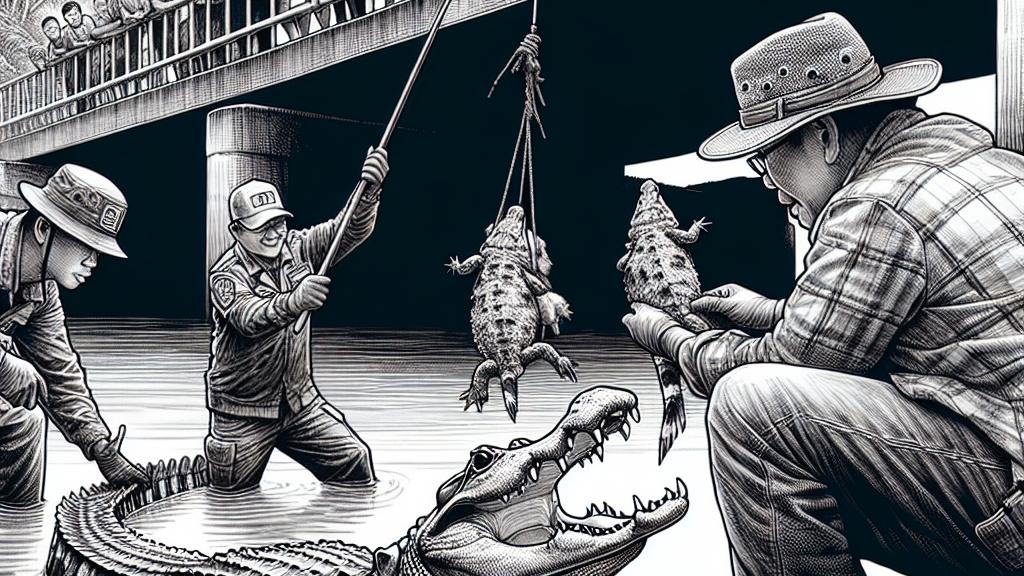Spectacled Caiman Captured in Pingtung River
Overview
- In a surprising event, a hefty 2.07-meter spectacled caiman was captured in Wandan Township, Pingtung, Taiwan, sparking curiosity and concern.
- Local authorities cleverly used raw chicken to lure the caiman from the Gaoping River, showcasing inventive wildlife management techniques.
- As residents speculate that several more caimans could still inhabit the river, the incident raises important questions about ecological balance and invasive species.

The Unexpected Discovery
On September 17, 2024, a captivating encounter unfolded in Wandan Township, Pingtung County, Taiwan, when residents spotted a remarkable 2.07-meter-long spectacled caiman gliding through the Gaoping River. They were bewildered yet intrigued by this alligator-like reptile swimming beneath a bridge. Promptly recognizing the potential danger, citizens alerted the Pingtung County Department of Agriculture. The authorities, quick on their feet, enlisted wildlife specialists who ingeniously employed raw chicken as bait— a tactic that plays right into the caiman's predatory instincts. After an intense three-hour effort filled with anticipation and hope, the team successfully coaxed the caiman to shore, where it was gently tranquilized and safely removed from the river.
Species Insight and Behavioural Characteristics
The captured caiman, a male of the species Caiman crocodilus, is easily recognized by the distinctive ridge that adorns its eyes, giving it a unique charm. However, its aggressive demeanor during the capture raised alarm bells, leading to the difficult decision to end its life to ensure public safety. This species finds its forte in various freshwater habitats, typically preying on fish and smaller mammals. Yet how did this caiman find its way into the rivers of Taiwan? There are compelling theories, including abandonment by previous owners or escape from a nearby breeding facility following past flooding events. Such situations shine a light on the critical issue of responsible pet ownership and the dire consequences when exotic pets are released into the wild.
Community Concerns and Ecological Implications
Following the dramatic capture, a wave of concern swept through the community. Many residents speculated that at least five other caimans might still be lurking in the depths of the Gaoping River, an unsettling thought that underscores the immediacy of addressing invasive species threats. Authorities confirmed that no additional sightings had been reported; however, the possibility that these non-native reptiles could disrupt local ecosystems is troubling. Naively, many in Taiwan cherish these creatures as pets, with minimal government regulation. The situation serves as a vital reminder: as exotic species encroach on local habitats, swift actions in wildlife conservation and public awareness campaigns become crucial to maintaining ecological balance and ensuring community safety.

Loading...